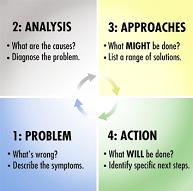Businessdictionary.com defines the Self-Fulfilling Prophecy as “[E]xpectations about circumstances, events, or people that affect a person’s behavior [such that] he or she (unknowingly) creates situations [that fulfill] those expectations.” In other words, your predictions about a situation (and therefore how you act in that situation) will cause those predictions to come true.
But what does this have to do with you as a negotiator? More than you think. In a typical negotiation with at least two partners per side, your beliefs about them, and what you anticipate from them, will influence your actions, which will in turn influence their reactions. When your counterparts on the other side of the table are in disagreement with each other, they look to you to confirm or disconfirm their various hypotheses. Therefore, your actions inevitably and directly prove one side correct and the other incorrect, thereby empowering one faction over another, influencing their behavior and completing the cycle of self-fulfilling prophecies!
